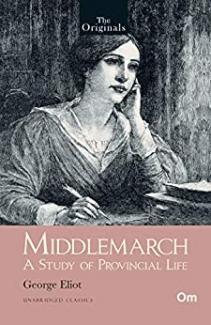THE ORIGINALS MIDDLEMARCH A STUDY OF PROVINCIAL LIFE
Availability :
In Stock
₹ 319.95
M.R.P.:₹ 395
You
Save: ₹75.05 (19.00% OFF)
(Inclusive
of all taxes)
Delivery:
₹ 0.00 Delivery charge
Author:
GEORGE ELIOT
Publisher:
OM BOOKS INTERNATIONAL
ISBN-13:
9789353764258
Publishing Year:
2023-01-30
No. of Pages:
804
Weight:
540 grm
Language:
English
Book Binding:
Paperback











